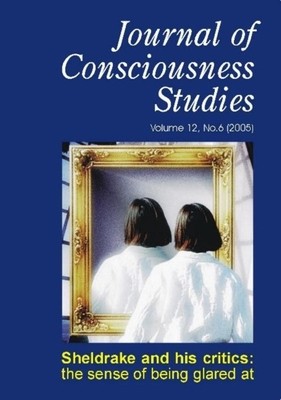
- We will send in 10–14 business days.
- Publisher: Imprint Academic
- ISBN-10: 1845400437
- ISBN-13: 9781845400439
- Format: 17.4 x 24.8 x 1 cm, minkšti viršeliai
- Language: English
- SAVE -10% with code: EXTRA
Sheldrake and His Critics (e-book) (used book) | bookbook.eu
Reviews
Description
Rupert Sheldrake outraged the scientific establishment in the early 1980s with his hypothesis of morphic resonance: his book A New Science of Life was denounced by the journal Nature as 'the best candidate for burning there has been for many years'. With his academic career torpedoed, Sheldrake has become the champion of 'the people's science'. Books such as Dogs That Know When Their Owners Are Coming Home and The Sense of Being Stared At have won him popular acclaim and academic opprobrium in equal measure. In this special issue of the Journal of Consciousness Studies, Sheldrake summarizes his case for the 'non-visual detection of staring'. His claims are scrutinised by fourteen critics, to whose commentaries he then responds. In his editorial introduction, Revd. Anthony Freeman explores the concept of 'heresy' in science and in religion.
EXTRA 10 % discount with code: EXTRA
The promotion ends in 23d.12:50:41
The discount code is valid when purchasing from 10 €. Discounts do not stack.
- Publisher: Imprint Academic
- ISBN-10: 1845400437
- ISBN-13: 9781845400439
- Format: 17.4 x 24.8 x 1 cm, minkšti viršeliai
- Language: English English
Rupert Sheldrake outraged the scientific establishment in the early 1980s with his hypothesis of morphic resonance: his book A New Science of Life was denounced by the journal Nature as 'the best candidate for burning there has been for many years'. With his academic career torpedoed, Sheldrake has become the champion of 'the people's science'. Books such as Dogs That Know When Their Owners Are Coming Home and The Sense of Being Stared At have won him popular acclaim and academic opprobrium in equal measure. In this special issue of the Journal of Consciousness Studies, Sheldrake summarizes his case for the 'non-visual detection of staring'. His claims are scrutinised by fourteen critics, to whose commentaries he then responds. In his editorial introduction, Revd. Anthony Freeman explores the concept of 'heresy' in science and in religion.


Reviews